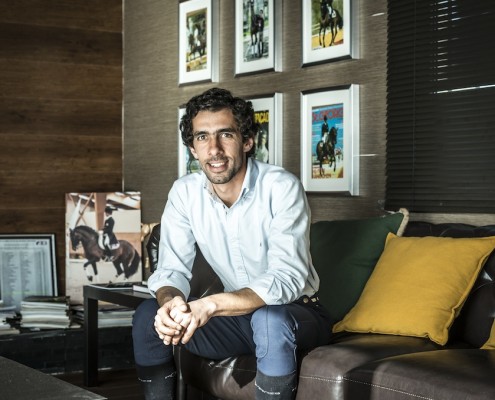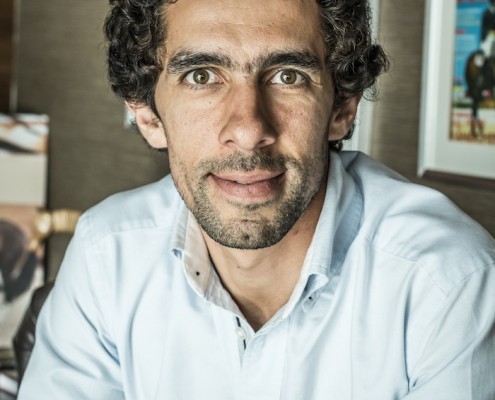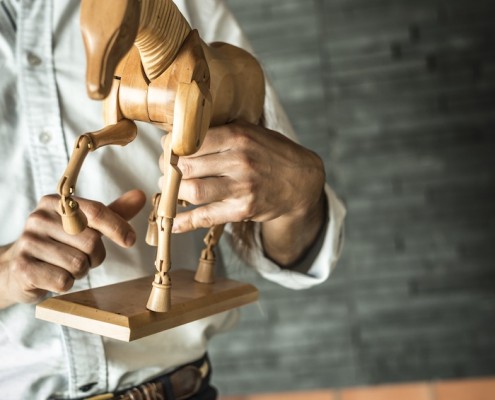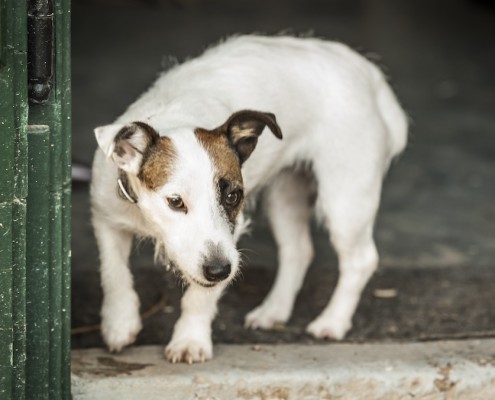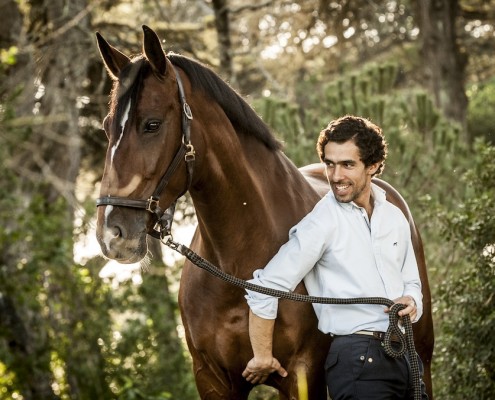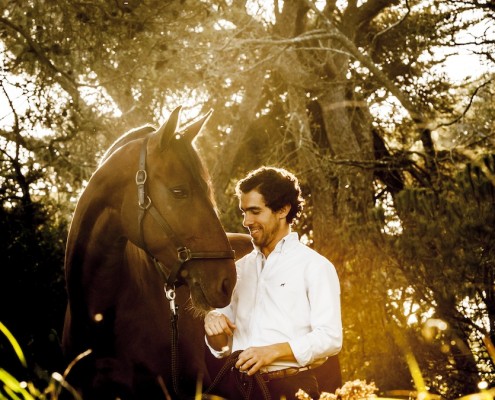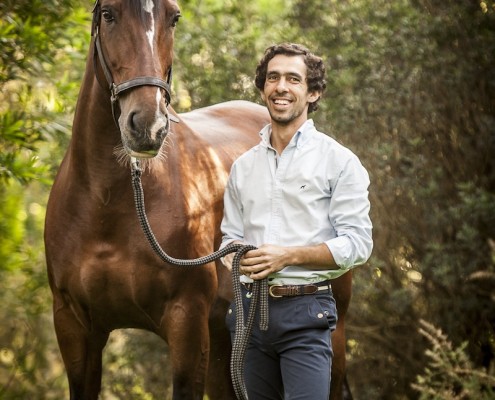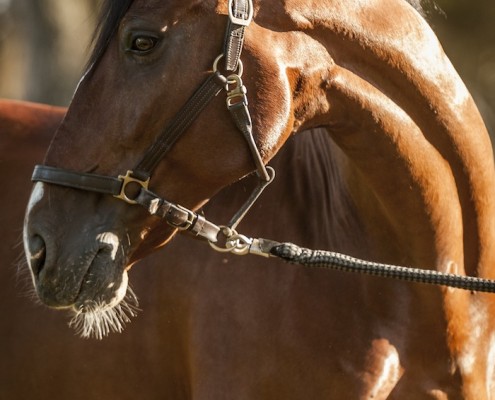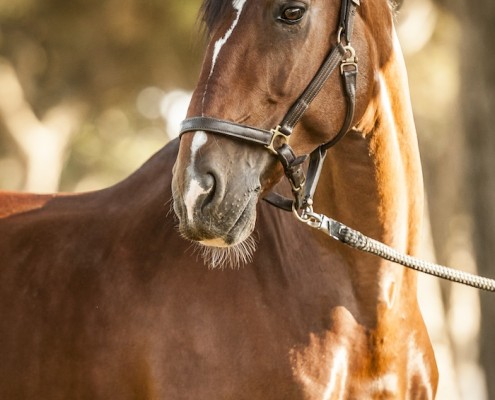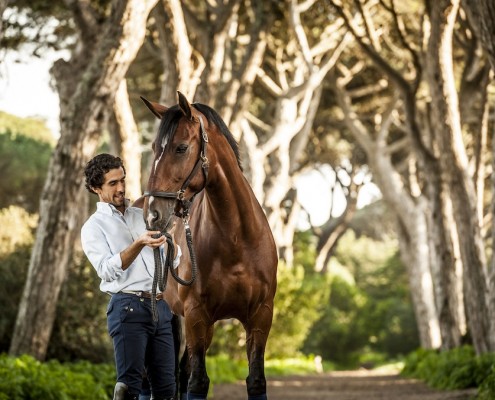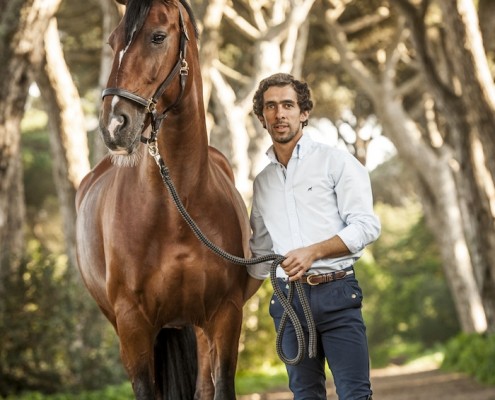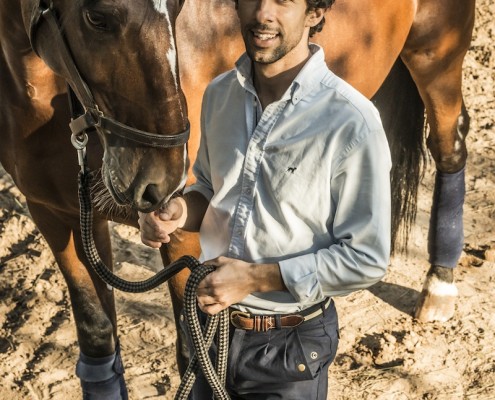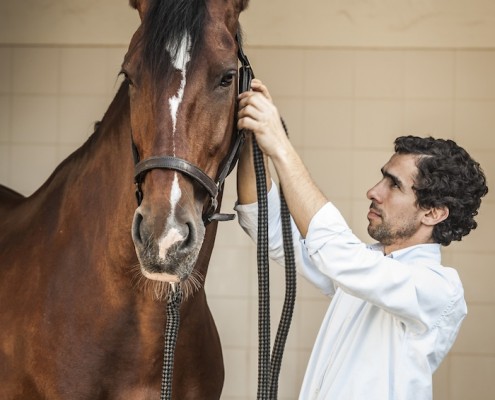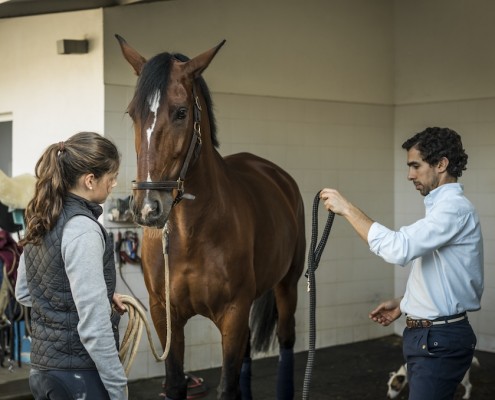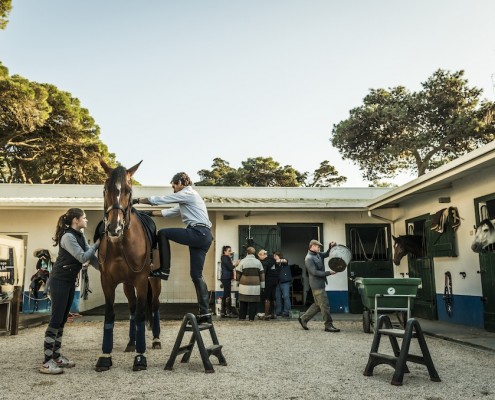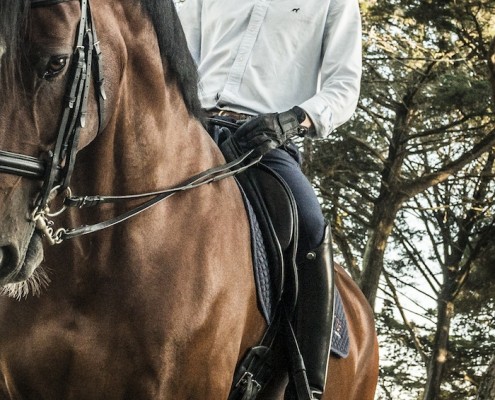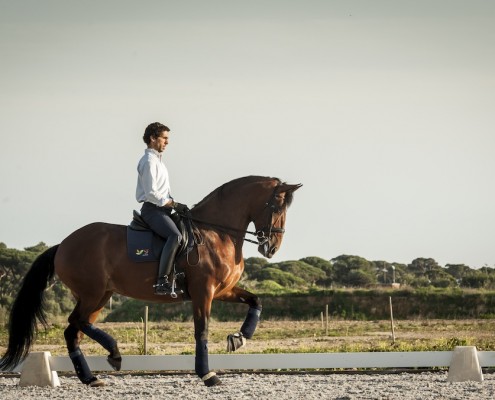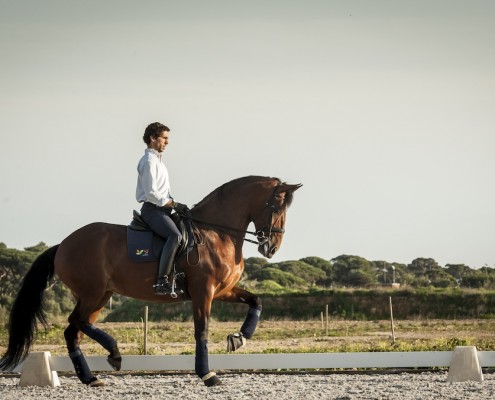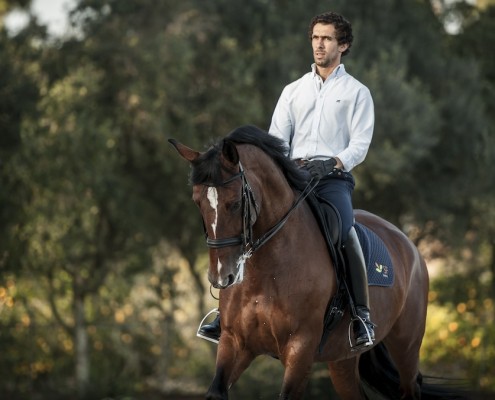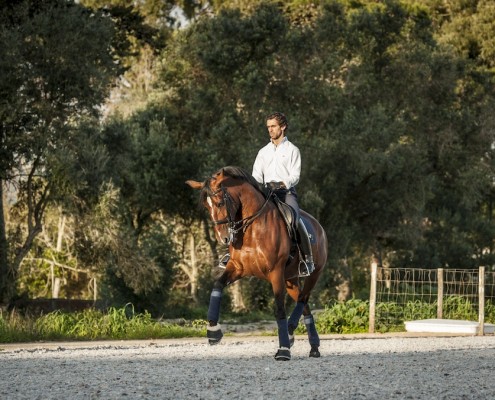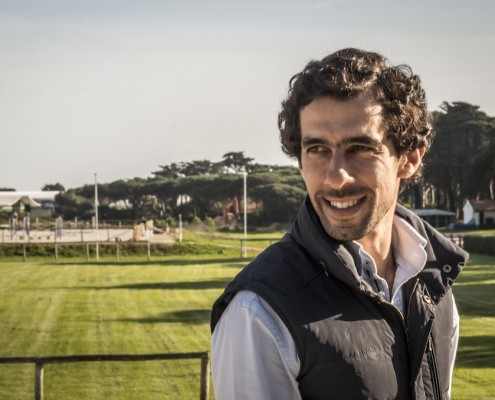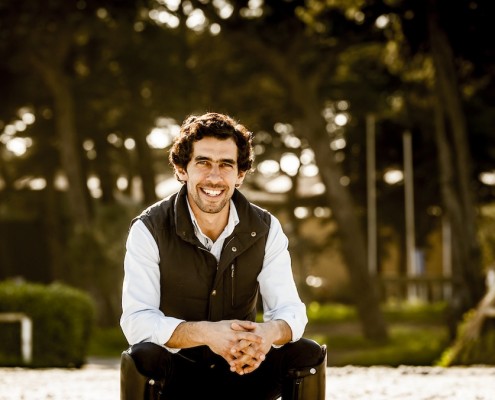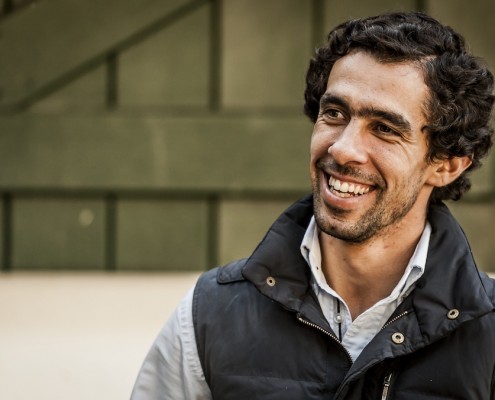Gonçalo Carvalho – Olympic Dressage Rider
Portugal´s highest Achieving Dressage Rider
I felt very fortunate to have this opportunity to interview Gonçalo Carvalho, and get to know the man who put Portugal on the world stage in dressage when he competed in the 2012 Olympics on the fabulous Alter Stallion Rubi.
Now Gonçalo has a wonderful purebred Lusitano mare named Batuta. They’re proving to be a great team excelling in International competition with super scores and contenders for the Rio Olympics.
HomeBase in Cascais
I arrived at Gonçalo’s yard in Cascais to be met by a very calm, peaceful environment of people, horses and dogs with the sun shining; everyone was happy. Immediately I was welcomed by Gonçalo’s parents, who are very involved in the business. After introductions I walked around the stables to meet the horses, and of course I couldn’t resist giving Batuta—who is absolutely gorgeous—an extra pat.
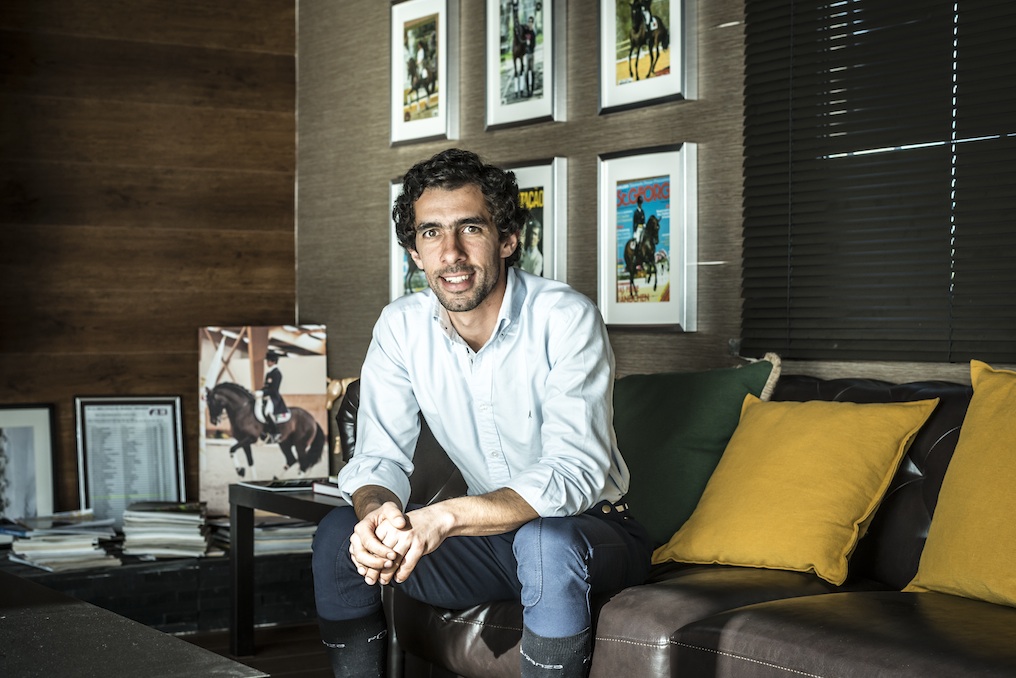
It wasn’t long before Gonçalo appeared, his little Jack Russell bouncing enthusiastically around him. Well dressed in a sweater and riding trousers, he has boyish good looks, slightly unruly curly hair and a wide smile. With a warm welcome he showed me into his office, which is in an interesting L shape, there are leather sofas, a large desk, a meeting table and a small kitchen.
The walls were adorned with various images of Lusitanos and Gonçalo riding Rubi and Batuta, piles of magazines—many with Gonçalo on the cover—and lovely equine sculptures scattered on the surfaces. The space is comfortable and informal.
Supporting the Lusitano Breed
While making coffee, we chatted about life and Lusitanos. Gonçalo is a huge supporter of the breed, and he explained that he believes they have vast amounts of potential to be realised and breeders are doing a good job of selecting to produce sportive Lusitanos without compromising too much of what makes the Lusitano so special. He mentioned how the wonderful versatility, agility and the ability of the breed to naturally collect is a real bonus in dressage and must be maintained.
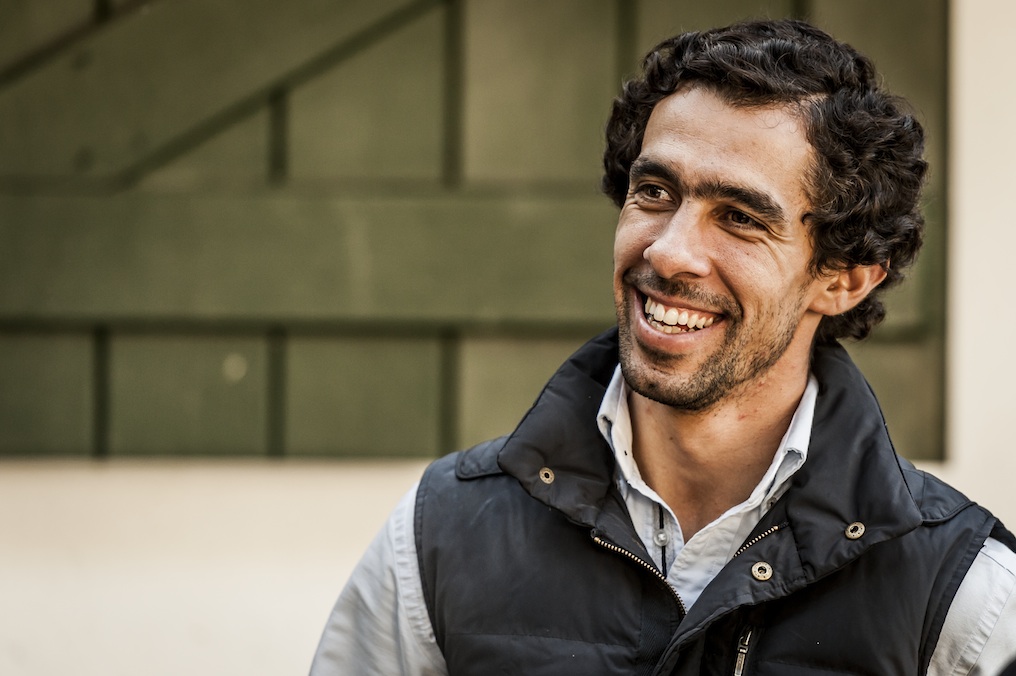
Settling down with our coffees, I asked him about how he got where he is today. He told me he began when he was very young; horses were very much part of his family so it was a natural step for him to ride. However, in his early years he developed a severe allergy to horse hair and was unable to ride or be near horses for several years.
I was surprised to hear this, so I asked, ‘what changed’? Gonçalo said to this day he has never had a moment where he thought the allergy was coming back; as a boy he had received weekly treatments to get over the problem but he doesn’t know if the treatments worked or if he just grew out of the allergy.
Fortunately for us he recovered and went on to develop his riding career in leaps and bounds.
Starting Out
In his early years he worked for João Pedro Rodrigues (now head of the Portuguese School of Equestrian Arte in Lisbon), When Filipe Graciosa, broke a leg, João invited Gonçalo to work in the school alongside him. Naturally, he accepted. He was 17 years old at the time and, impressed with his riding, they invited him to train and ride for the school, and he remained there for many years.
I asked him what he feels are the best aspects to having his foundations in classical dressage and what the most important things he gained from his time in the Portuguese school were.
Gonçalo said –
‘I think classical equitation is vital for understanding and developing sensitivity. From my point of view, I want to stay true to the classic way by always having soft, sensitive hands and maintaining a sensitivity with the horse. It is also essential to be aware of the position in the saddle while remaining relaxed, calm and attentive. I believe Carl Hester has been very important for the classical way in modern International dressage competition; he is a classical rider with so much sensitivity in his work. I like and admire him very much.
NB – Read more about Classical Dressage
‘While in the school, in addition to developing my classical riding skills, I learnt how to perform. I was in so many shows both nationally and internationally, and I gained vital experience in the importance of concentration, performance and how to manage myself. It has helped me hugely in competing internationally, especially, for instance, in the 2012 Olympics.
How do you feel when you ride into a big International arena?
I find it easier to compete in a big arena with hundreds watching because then you cannot see any faces. It’s harder with a smaller audience as it is so much more intimate. I get a great feeling riding into the arena—during the run up to the day I prepare myself psychologically by reading psychology and personal development books. I have one favourite written by a Portuguese author called ‘How to win with your Mind’, and I am now reading it for the third time, I always refer to it before a test. It teaches you to work well, focus and manage your emotions. Nowadays I rarely get stressed at all.
What was it like in the London Olympics?
It was an amazing experience I will never forget, however, during my tests I wasn’t aware of anything around me. I simply focused fully on the dressage rectangle and Rubi.
My wife is always telling me that I look too serious and I am never smiling in my tests, but I cannot control this because I am so focused on the test, basically, that I am not working for what is around, I am working on the exercises, and I concentrate very intensely.
Who else do you admire?
Isabel Werth is an amazing rider and she works with a lot of different and difficult horses. Also Edward Gal, he is a very different, talented rider and I think he is very good.
How do you find Batuta compared to Rubi?
Batuta is an amazing mare, and she is completely the opposite of Rubi. She is super sensitive while Rubi was not. She reacts to every tiny change in your body, so she needs a lot more time than Rubi needed. She literally reacts to every detail and is aware of everything. She needs space to learn to remain calm, especially when competing, because if she sees something that worries her, she reacts and becomes hot, but it is just a matter of time. I really love working and competing with her; we have a super bond.
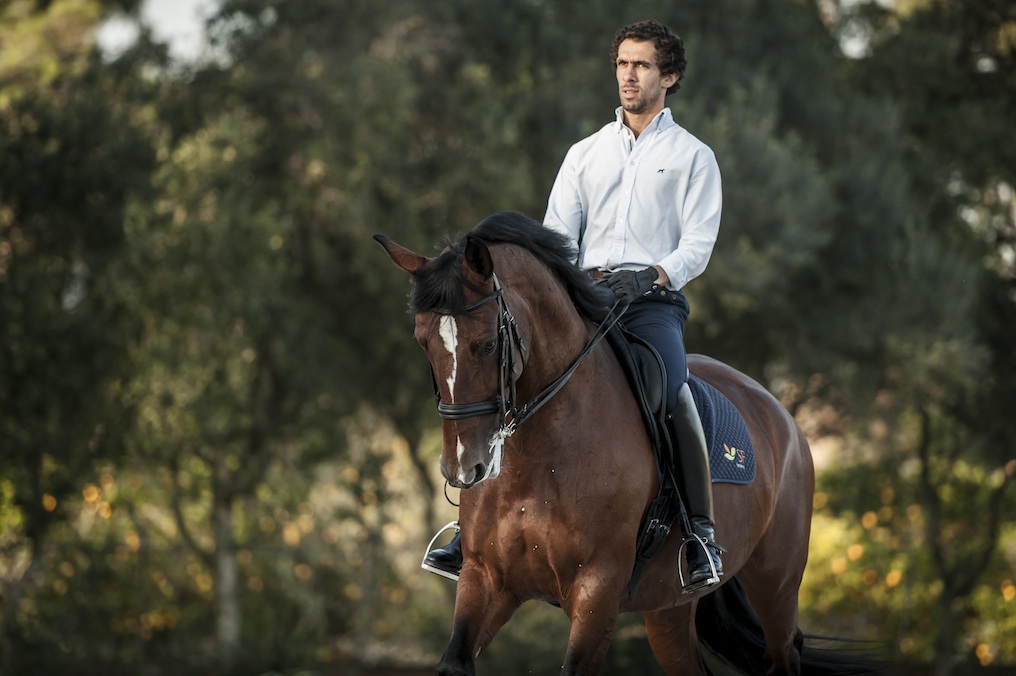
Both Batuta and Rubi are not particularly typical Lusitanos.
For example, Rubi is an outstanding horse, but he has aspects in his conformation balance that made him difficult to work with, such as a thicker stallion neck. But, he is so amazing in character, he 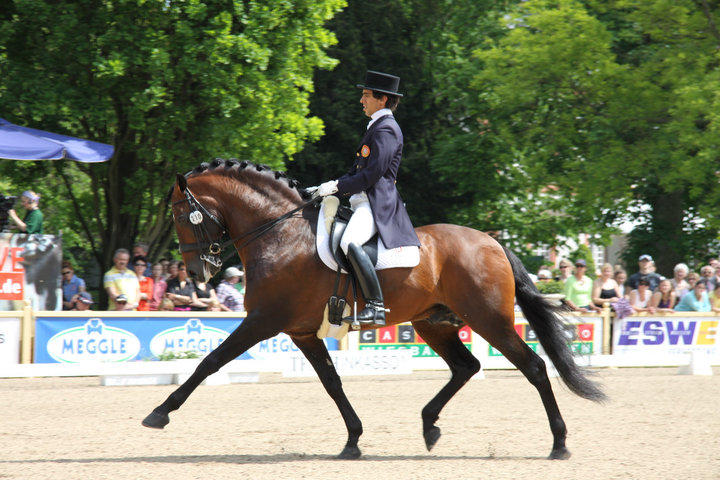 has the best mind that you can imagine. Working with him was a real pleasure. I am very thankful to have had Rubi in my life and all that we achieved together. What’s more now is that Rubi is proving to be a top father—there are already many excellent quality offspring from him with great minds like his.
has the best mind that you can imagine. Working with him was a real pleasure. I am very thankful to have had Rubi in my life and all that we achieved together. What’s more now is that Rubi is proving to be a top father—there are already many excellent quality offspring from him with great minds like his.
Rubi was a life changing horse for me and I believe some of his offspring will achieve great things.
image : Gonçalo and Rubi from Christine Jacoberger
I understand you work with some breeders to develop the sport Lusitanos. What do you think about the breeding philosophies today?
Lusitanos have outstanding qualities and they are so versatile that I think it is vital that the breeders stay focused on breeding their Lusitanos for one purpose and not try to produce horses for everything. The Lusitano is such an outstanding breed they can be a bull fighting horse, show jumpers, international dressage horses, show horses, compete in harness, working equitation—really, they are so adaptable. Their characters are wonderful.
I don’t want to see these fantastic qualities lost. Breeders should stay true to Lusitanos, admittedly they are not always the most beautiful horses, however, I do feel that sometimes people get too wrapped up in looks. It is far more important to have an eye on the qualities. If breeders wish to create sports Lusitanos then they need to really understand what qualities the Lusitanos already have, the best qualities required for International Dressage, and enhance these.
Warm Bloods vs Lusitanos
Warm bloods today are becoming more like Lusitanos—more sensitive, intelligent and more agile, making collected work easier for them. It is these qualities the warm blood breeders are developing to improve their horses’ performances, and it is these qualities the Lusitanos naturally have so they must be preserved.
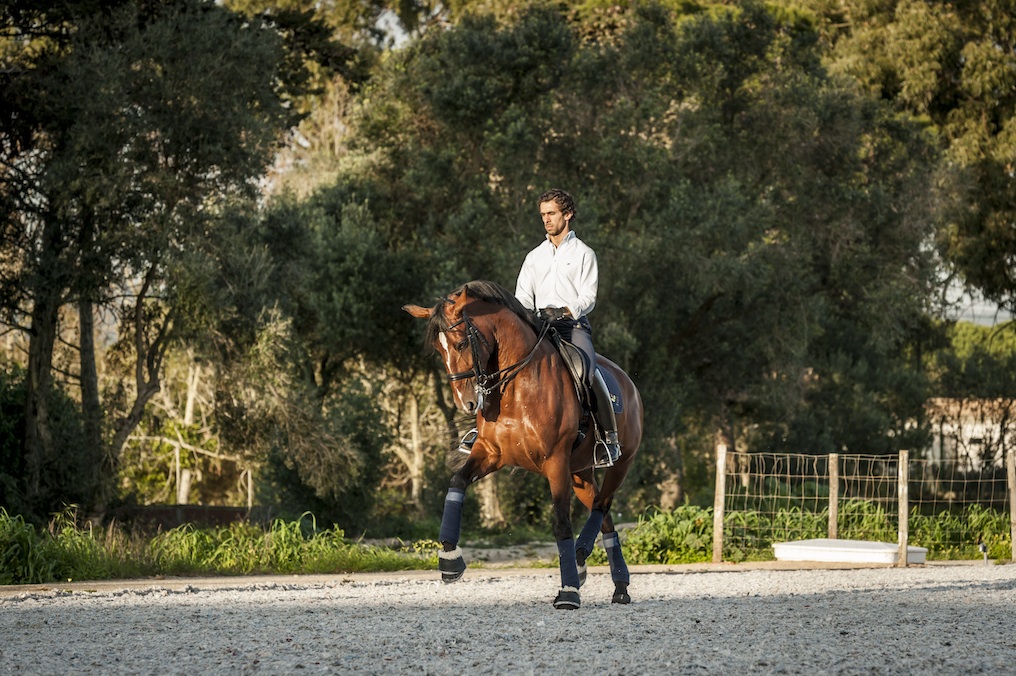
I am very fortunate that Lusitano Horse Finder has its yard at Quinta da Marinha, the same location as Gonçalo. Most days we are able to see Gonçalo riding Batuta and other horses he has in training. It is truly enjoyable to see him work—I’m continually struck by how he is totally focused, soft and quiet with his horses. He walks the horses on a long rein for a long time before and after work. When he is training I’ve noticed he works mostly the basics, asking for very few high level movements during a session.
I asked him more about his training philosophy:
Gonçalo “The most important thing for me is feeling and a good base.
“I continually look for Batuta to be in a balanced contact in the reins, relaxing her back and achieving connection right through the body—from the tail to the mouth. To achieve this we need to have the first 5 points of the “escala de treino (training scales)” firmly established and correct. They are rhythm, suppleness, contact, impulsion, straightness. When I feel these aspects are in place I can go to the collection. Beforehand I simply work to relax the horse and achieve a good feeling.
Even with a GP horse the basics are the most important things to regularly practise. I spent 90% of the time working on only the basics with Rubi and now the same with Batuta. It’s the key to enjoying my riding, a good feeling is fundamental, the horse is relaxed and with me that is the best experience I can have. If I fail to create this connection, for sure I will not enjoy the journey and certainly we will not achieve good scores in the dressage tests.
Always the Basics
Even with young horses, it is the same work. The only difference is I will not search for the collection in a young horse. I am simply focussed on the first 5 points of the scales. Only after they are in place can I begin to work the exercises or lateral movements and later on move to the collected work. The horse can only produce quality collection in the right way when he is prepared with solid base work.”
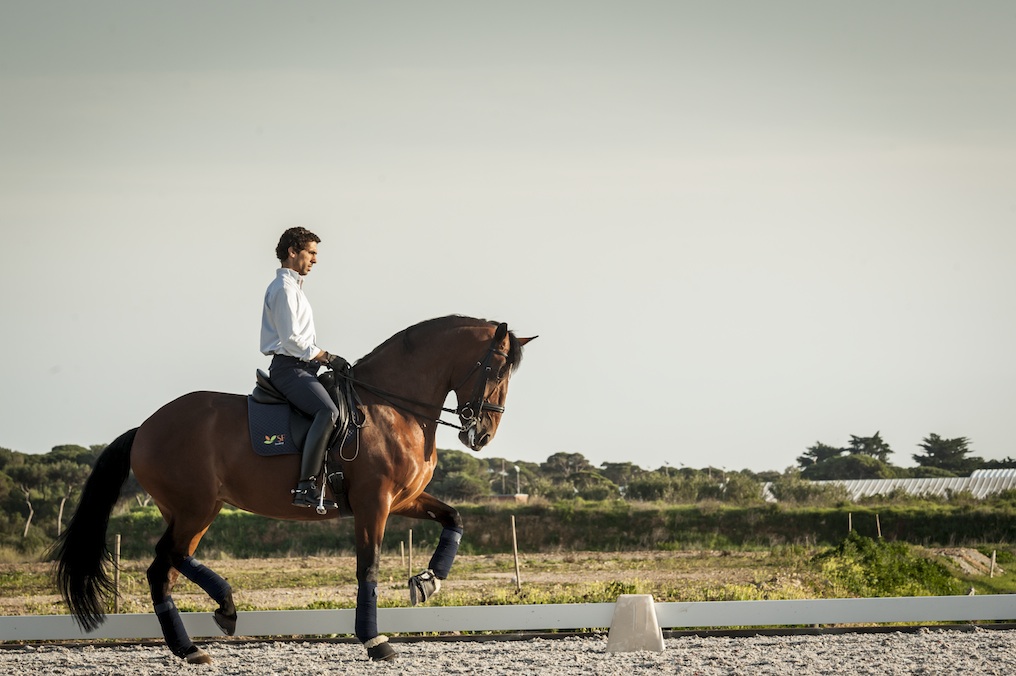
Who is your current trainer?
I train with the ‘modern master’ Jan Bemelmans, and he is an amazing teacher who I have learnt so much from. I met him when I was training with the Spanish team. He trained Batuta from 4 years and so I trained with him when I got her.
You have people coming to train with you; are they all experienced dressage riders?
Some are but not all, and for me the most important thing is to be with good people who are adding to the happiness of the team and environment. I have clients here to train with me from many countries, and many come with their horses they stay for a few weeks or even months. I like this very much and wish to develop this work further in Portugal. I travel so much with the competitions and teaching clinics that it is essential I have a business in Portugal so that I can be with my family.
A comment from Dressage Professional Dressage Rider Tori Peters in UK
I was guiltily growing a little bored watching the freestyle at London 2012, until suddenly goosebumps covered my arms as I watched a little stallion and his rider perform utter magic. If I could develop my ability and understanding within my riding to produce such magic, even if I never rode beyond my current level of inter 1, I would be happy.
She Now trains with Goncalo
I have been training with Goncalo now for the past 4 years and both my riding and coaching have undergone serious adjustments and massive improvements. Feeling a desperate need for more, I was lucky enough to travel to Portugal to train and shadow Goncalo for 5 weeks, thanks to my sponsors Equestrian Performance and WB Recovery Ltd, and boy did I learn!
Goncalo has given me the most precious ingredient needed to educate my horses and that’s to teach the horse to use his balance and intelligence to reach our competition goals and to use technique not power as my tools. Dressage with Goncalo is to developed a relationship with your horse where the horse willingly allows you to have control over every muscle in his body. It’s the most incredible feel when you can use the lightest of aids to ask a willing horse to perform a movement for you and he does it with effort and pleasure. I’m not hiding the fact that it was seriously hard work and a huge emphasis on self discipline, however you cannot swim for new horizons until you have courage to lose sight of the shore. Goncalo really is a master and although my journey has only just begun at last I feel I have found the trainer to both admire and learn from.from Tori Peters image by Julie Nicleson


